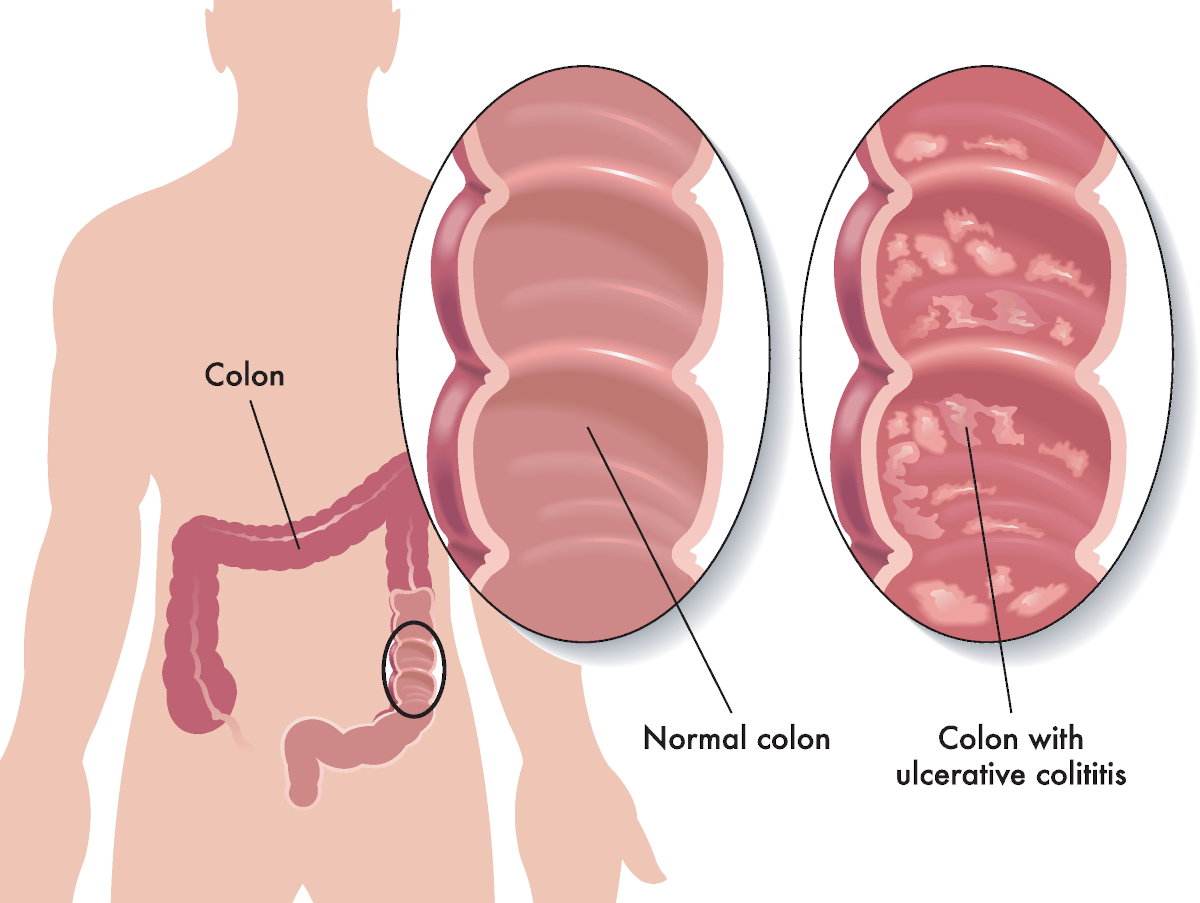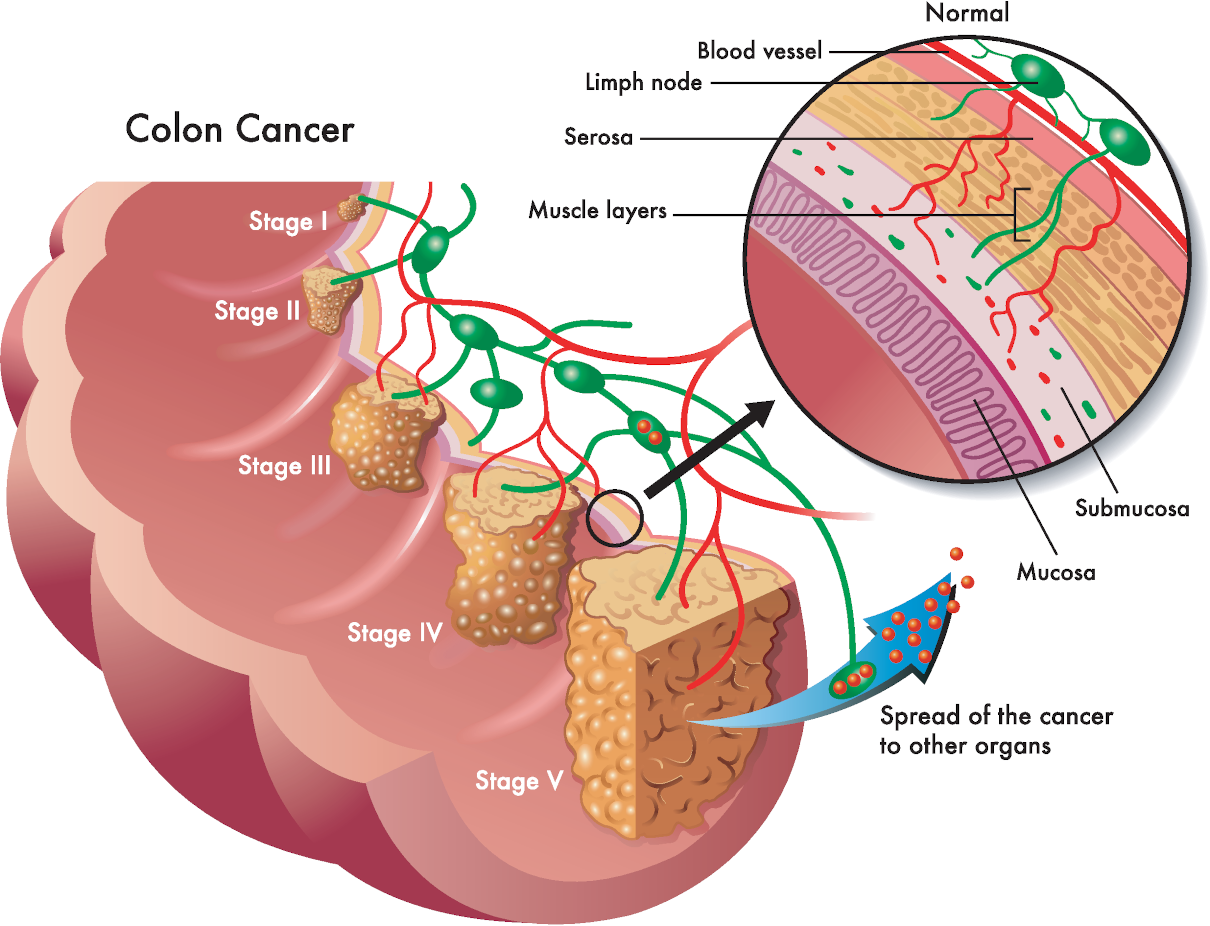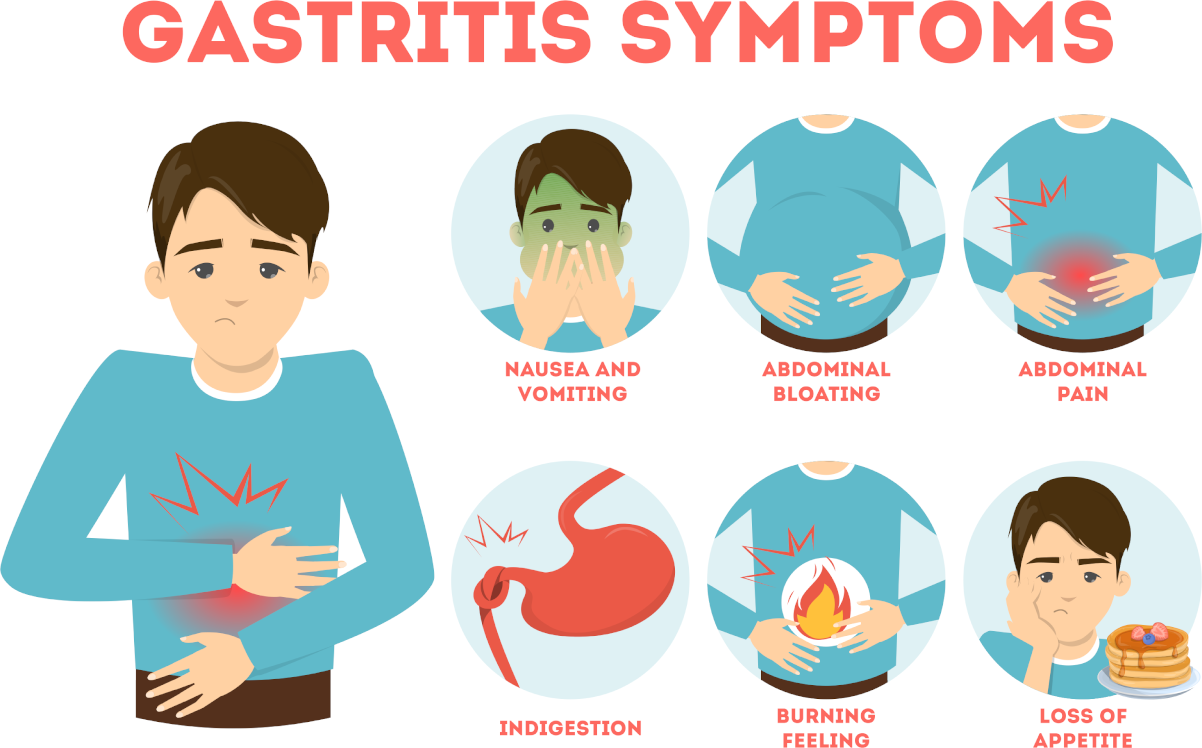
Colitis is an inflammatory disease of the mucous membrane of the large intestine.
Acute colitis occurs quickly and is especially painful, chronic – long and sluggish. Besides, acute colon inflammation often co-occurs with the inflammation of the small intestine (enterocolitis) and stomach (gastritis).
Colitis can also take many forms, such as ulcerative (ulcers that appear on the walls of the intestine), infectious (caused by pathogenic microorganisms), ischemia (reduced blood supply in the gut), medicinal, etc.
Reasons
There are several reasons for the development of colitis:
- intestinal infections;
- long-term use of certain antibiotics and other medicines;
- violation of the blood supply to the intestine;
- malnutrition;
- exposure to radiation;
- intestinal dysbiosis;
- food allergies;
- parasitic worms;
- lead, arsenic poisoning, etc.;
- poor heredity;
- focused infection within the gallbladder and pancreas;
- mental and physical overexertion and an unhealthy daily routine;
- and several more unknown reasons.

Alkalising colonic irrigation with sodium bicarbonate
Safe and effective colon hydrotherapy includes an initial consultation. Consequently, sodium bicarbonate delivered to the colon through hydrotherapy can kill off candida.
In particular, the causes of the development of nonspecific ulcerative colitis, Crohn’s disease and chronic inflammatory bowel diseases.
Colitis – the development and prevention of disease
Colitis mainly damages the intestinal mucosa and is commonly caused by intestinal infections. So, bacteria, protozoa (amoeba), or other foreign microbes that can potentially reach the intestine’s mucous membrane will damage it and cause inflammation.
The consequences include painful defecation, diarrhoea (sometimes with blood and mucus) and abdominal pain. Moreover, substances secreted by bacteria enter the bloodstream, increasing body temperature. Also, in chronic colitis, various factors damage the intestinal mucosa: violation of the blood supply to intestinal walls, malnutrition, food allergies, etc.
Procedure
Signs of any colitis include abdominal pain, constant rumbling or bloating. They all come with stool abnormalities, such as constipation, diarrhoea or both. As a result, patients feel lethargic and have a rise in temperature in more severe cases. Furthermore, acute colitis lasts from several days to several weeks. On the other hand, chronic colitis lasts longer.
To summarise, colonic irrigation allows you to maintain the intestines’ health and safety. The procedure strengthens the bowel walls, eliminates toxins, restores the microflora and stabilizes the immune system.

Food intolerance test of 208 ingredients
This is our most comprehensive food and drink test. It analyses your client’s IgG antibody reactions to 208 food and drink ingredients. This test will highlight their food triggers and help you formulate an IgG-guided elimination diet together.










